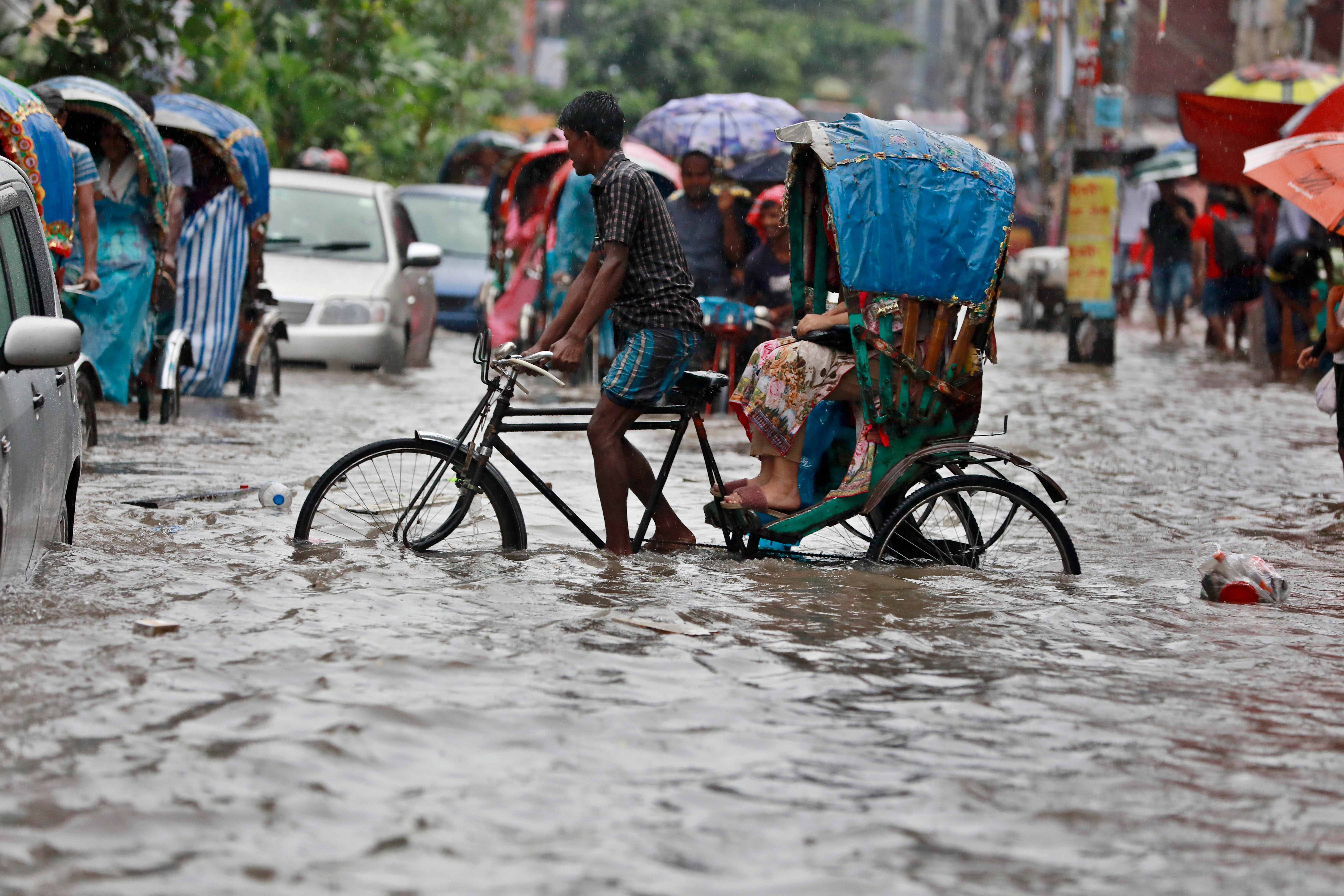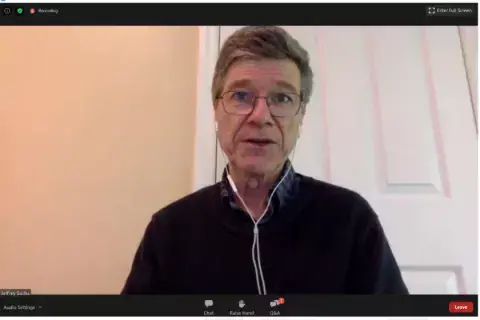
Ahead of United Nations World Environment Day, leading environmental experts commended faith based organizations (FBOs) on their efforts to combat climate change, offering recommendations for better collaboration such as increased technological “interchange” and the establishment of platforms which would enable faith and science to better support each other.
The discussion took place during KAICIID’s latest webinar on June 4, titled Faith for Earth: Climate Change and Environmental Justice, which was held in cooperation with the Coalition of Faith-Based Organizations, the United Nations Environment Programme (UNEP) and the United Nations Office on Drugs and Crime (UNODC). Participants addressed pressing environmental issues related to the United Nations Agenda 2030 and the Sustainable Development Goals (SDGs).
Panellists included Kiran Bali, Global Chairperson at United Religions Initiative (URI), Prof Roberto Manuel Carlés, President of the Society of Social Defense, Dr Harald Egerer, Head of the UNEP Vienna Office, Jorge Eduardo Rios, Chief of the Global Programme for Combating Wildlife and Forest Crime at UNODC, and Jeffrey Sachs, renowned economist and Director of the Earth Institute.
Panellists pointed out that as the problems the world is facing from climate change are global in nature, they require global partnerships.
According to Rios, the planet has already lost 52% of its wildlife in the last 40 years, as well as 11.9 million hectares of tree cover, including 3.8 million hectares of primary tropical forest – the equivalent to the loss of a football pitch size of forest every six seconds. “These really are the lungs of the earth. When is too much just too much?” he asked.
Egerer explained that FBOs are ideally positioned to change the tide of climate degradation due to the “enormous assets” they bring to the table. “All of our religions, all of our spiritual expressions and our indigenous traditions highlight the importance of environmental stewardship. In a world where 8 in 10 people identify with a religious tradition, we can understand the power that that has,” Bali added.
According to data provided by Egerer, more than 250 FBOs are currently associated with the environment. They represent the fourth largest economic power, own 8% of habitable lands and 5% of commercial forests and are involved in 50% of schools worldwide. Therefore, their contributions to environmental protection and climate change education are vital.
UNEP has worked to harness the power of FBOs through their Faith for Earth initiative, bringing faith leaders to the decision making table at the United Nations and encouraging them to support the implementation of the SDGs.
“We want to provide an interfaith platform for them to contribute to and maximise the impact, also within the UN systems, with the vision that there is a world where all creation can live in balance and not only humans are subordinating and controlling the resources of the earth,” Egerer said.
Panellists pointed to the Vatican as a commendable example of how faith can provide solutions to the global climate crisis, referencing Pope Francis’ encyclical letter Laudauto Si’: On Care for Our Common Home.
Drafted in 2014, the letter calls for a sense of greater ethical responsibility towards the environment, calling for a culture of global eco-solidarity, which draws upon the scientific knowledge of the Pontifical Academy of Sciences.

Sachs explained that the Pontifical Academy of Sciences itself is a unique technical institution made up of many faiths, which is a demonstration “of how the worlds of faith and science can be brought together in a fruitful and powerful way.” The Academy includes scientists from diverse faiths and advises the Catholic Church and the Pope on the detailed science that underpins many of today’s global challenges.
Sachs believes that the establishment of similar academies and foundations under the umbrella of other major world religions could help FBOs and faith leaders in their fight against climate change.
“Other major faiths typically do not have such an instrument at their benefit – one thing we could think about doing is providing such assistance or providing such avenues for technical interchange,” he said.
According to Sachs, this is particularly important since many of the major religions are asking for help to understand the nature of the climate crisis. “The will is there. The knowledge and understanding of climate change, loss of biodiversity and the other challenges we are facing, requires technical knowledge and many leaders of many faiths are asking for help in that,” he said.
Carlés highlighted the Vatican’s plans to extend its research and partnerships in this area in order to promote sustainable development across the globe. During the webinar he officially announced the creation of the Laudato Si’ Foundation as the culmination of Pope Francis’ efforts.
“The Foundation will develop research and intervention projects for human sustainable development, environmental protection and contrast to climate change,” he said.
Like the Vatican, many faith and interfaith communities are directing their commitment towards environmental justice and encouraging sustainable behaviors, Bali said.
However, according to Bali, promoting good habits is not enough. Faith communities must also effect change at the policy level, setting clear, measurable goals and addressing the UN’s target indicators from Agenda 2030.
URI interfaith cooperation circles and their partners have attempted to do this from the grassroots level by lobbying local policymakers “to take urgent action to improve and protect our environment. Policymakers are keen to work with grassroots communities, faith communities in this partnership to ensure we can make the change we need to," she said.
Bali outlined one recent example in the United Kingdom which included efforts to reduce carbon emissions and greenhouse gases. Together, faith based and civil society organizations lobbied for policy reform and set clear goals to make their community carbon neutral by 2038. They then established a carbon budget, increased the number of vehicle charging stations for electric vehicles, helped young people organize a climate summit and formed a climate commission to oversee recycling and tree planting.
Although Bali believes there is still much to do, she says she is encouraged by the work that is already taking place through the efforts of faith communities.
“The work is happening. We have converted dialogue into action.”